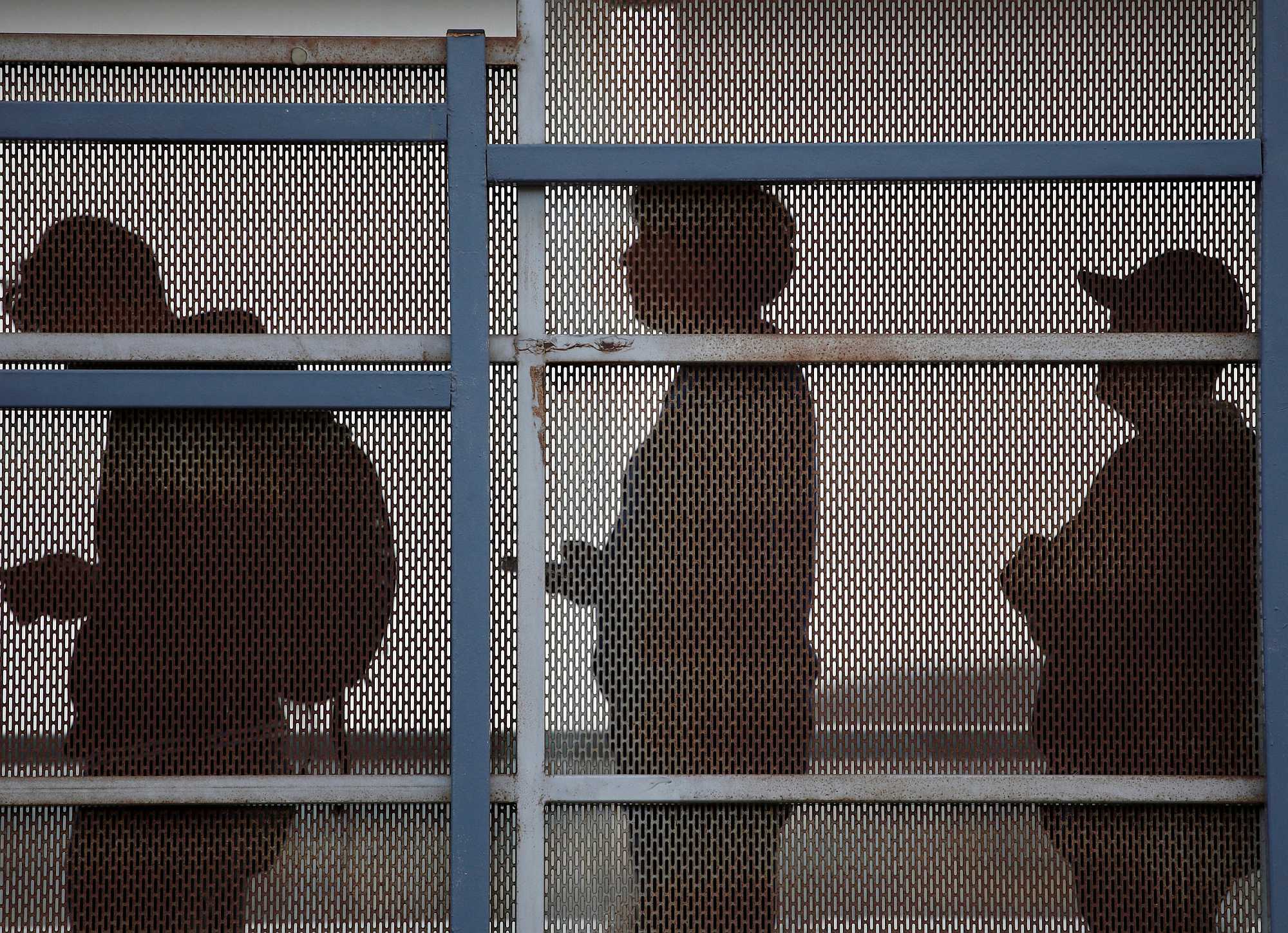The U.S. government has again deported a planeload of Brazilians, the second such chartered flight since October to return an increasing number of migrants trying to enter the United States illegally from Mexico.
The flight from El Paso landed in Belo Horizonte in central Brazil, Brazil’s Foreign Ministry informed. The October flight as well as this latest one had about 70 deportees aboard.
The two deportation flights in October and now are the first authorized by Brazil since 2006 and mark a policy change by far-right President Jair Bolsonaro who has sought closer ties with the Trump Administration, two Brazilian officials said on condition of anonymity.
Brazil has previously refused to receive mass deportations from the United States and is now allowing these transfers to help President Donald Trump’s policy of speeding up deportations of illegal migrants at the Mexican border, they said.
Brazil’s Foreign Ministry confirmed the Brazilian government had been notified of the repatriation of Brazilian nationals who were not admitted to the United States.
“What else can we do? They are being detained at the border and aren’t going to be able to enter the United States. We have to bring them home,” a third official said when asked about the deportations.
Trump has made restricting legal and illegal immigration a central focus of his presidency and his 2020 reelection campaign. His administration has issued a series of sweeping policies seeking to limit access to U.S. asylum at the Mexico border and has pledged to ramp up deportations of migrants living illegally in the United States.
Matthew Albence, acting director of U.S. Immigration and Customs Enforcement, which coordinates deportation flights, said larger flights were more efficient, but did not provide details of the flight to Brazil.
“We can put 70 on a plane and get them all at one time, as opposed to flying 70 individuals by themselves,” Albence said during an interview at the agency’s headquarters in Washington. “That’s certainly a lot cheaper and more efficient.”
The number of Brazilians arrested by the U.S. Border Patrol at the U.S.-Mexico border surged to 17,900 in fiscal 2019, a more than tenfold increase from the previous year, according to the U.S. government.
Brazilian diplomats believe this surge was due to Brazilians wanting to live in the United States anticipating tougher rules for visas under Trump and deciding to enter from Mexico.
The two Brazilian government sources said Brazilian diplomats were told not to place hurdles in the way of U.S. deportation of Brazilians because that could hurt closer ties with Washington.
Few Brazilians have a valid reason to request asylum as the country is neither at war nor seen as dangerous for minorities, according to Brazilian officials, so they are mostly denied entry and held in U.S. detention at the border.
Awaiting in Mexico
The United States has begun sending Brazilian migrants crossing the border from Mexico back there to await their U.S. court hearings, the U.S. Department of Homeland Security (DHS) announced.
Brazilians will be sent to Mexico under a program known as the Migrant Protection Protocols (MPP). More than 57,000 non-Mexican migrants have been returned to Mexico under that effort since it launched a year ago, according to the DHS.
The program is one of several moves by the administration of U.S. President Donald Trump to limit access to asylum at the U.S.-Mexico border. Trump faces re-election in November and has made immigration a focus of his 2020 campaign.
The DHS cited a rising number of Brazilians arrested at the border in its announcement.
U.S. Border Patrol caught roughly 17,900 Brazilians at the southwest border in the last fiscal year, which began Oct. 1, 2018. The figure was a sharp increase from 1,500 arrests a year earlier.
The program previously had covered Spanish-speaking migrants. But the addition of people from Brazil, where Portuguese is the official language, expands its reach further.
Rogelio Pinal, the head of the human rights office in Juarez, Mexico, said that Brazilians who cross the border in El Paso, Texas, and are sent to wait in Juarez will be taken to a federally run migrant shelter and provided with an interpreter.
The DHS said in its announcement that U.S. federal law did not limit the scope of the program to any one nationality or language.
This article was produced by the Thomson Reuters Foundation. Visit them at http://www.thisisplace.org

